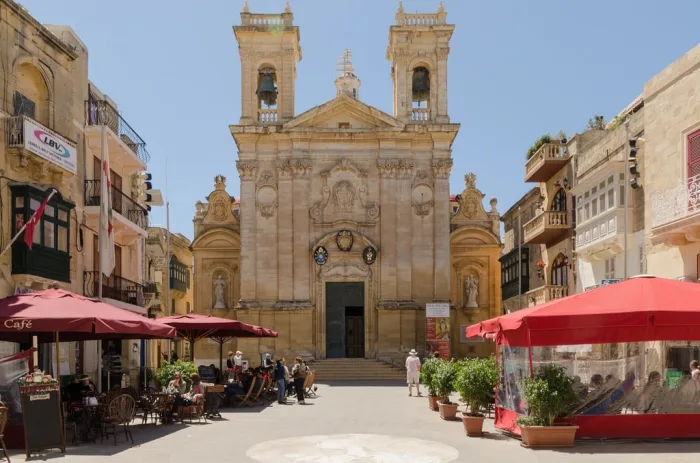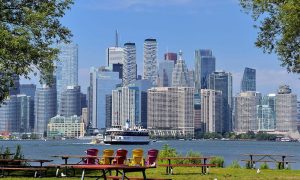With the European countriesimmigrantsWhile the policy is gradually tightening, the Mediterranean island country of Malta has become a popular destination for more and more people due to its flexible residence policy, stable economic environment and highly internationalized atmosphere.Overseas ImmigrationThe ideal destination. Especially in 2025, Malta's policy for expatriate applicants has been optimized in a number of ways, whether you are a skilled person, an entrepreneur, a digital nomad, or wish to obtain residency status through investment or family reunification.Immigration to MaltaAll provide clear and feasible paths.
In this article, we will systematize the main types of Maltese immigrant visas in 2025, the application process, the path of residence, and analyze the practical advantages brought by the country's immigration status.

One,Malta ImmigrationPolicy overview: small countries open up
Malta is a member of the European Union, as well as a member of the Schengen Area, the Commonwealth and the Eurozone. Its immigration system is a blend of EU regulations and national flexibility, offering foreigners a variety of paths to long-term or permanent residence. Compared to traditional European countries such as France and GermanyMalta ImmigrationThe process is more straightforward, the approvals are more efficient, and English communication is supported throughout, making life adaptable.
II. Malta's Hot Visa and Residence Types in Detail
1. General Work Visa (Single Permit)
Suitable for foreigners employed in Maltese businesses covering IT, finance, education, healthcare, etc.
-
Validity: 1 year, renewable
-
Requirements: Employer Sponsorship + Contract + Professional Qualifications
-
Approval time: 4-8 weeks
2. Digital Nomad Visa (Nomad Residence Permit)
Ideal for remote workers and freelancers, it is a consistently popular visa type for 2025.
-
No need for a Maltese employer, just work for an offshore company
-
Income must exceed €2,700/month.
-
Family members are allowed to stay for up to 3 years.
3. Malta Permanent Residence Program (MPRP)
Suitable for those who wish to obtain status through investment, the application threshold is lower compared to the passport program.
-
Investment Method: Government Contribution + Property Rental or Purchase + Management Fee
-
One step to a permanent residence card
-
Long-term residence is allowed, children's education and family medical care are free of worry.
4. Malta Nationality Investment Scheme (MEIN)
For High Net Worth Individuals (HNWIs) who wish to fast track their naturalization to Malta through investment.
-
High investment thresholds (contributions + real estate + treasury bonds)
-
Citizenship usually acquired within 12-36 months
-
One-step passport to the European Union with free passage to 180+ countries
5. Family Reunification Visa
It applies to applications for residence by spouses, children and elderly parents, with clear procedures and complete protection.
-
The main applicant must have legal residence status
-
Proof of livelihood security is required
-
Spouse and children can work, go to school and get medical care if they are granted a residence card together.
III. Detailed explanation of the status path: from residence to permanent residence and then to nationality
In Malta, there is a clear path to status advancement:
-
Initial visa (1 year)
-
Renewal or change to permanent residence (within 5 years)

-
Application for a long-term residence card (LRC) after 5 years of continuous legal residence
-
10 years of legal residency or naturalization through the MEIN investment program
It is worth noting that Malta does not make it mandatory for long-term immigration applicants to learn Maltese, and English is spoken at a very high rate, greatly reducing cultural and linguistic barriers.
Why Malta? Five Identity Advantage Highlights
✅ 1. EU + Schengen Dual Freedom of Movement
Maltese status is equivalent to an EU Residence Permit, allowing free access to the Schengen countries for business and travel.
✅ 2. Cost-effective European Identity
Compared to countries such as Portugal and Spain, Malta has a lower investment threshold for residency, but brings essentially the same rights.
✅ 3. Tax-friendly environment
Malta applies a reasonableNon-global taxationsystem, which is particularly lenient for non-tax residents, is suitable for international asset allocation.

✅ 4. Quality education and health care
Malta's healthcare system is on par with the UK and the education system is also predominantly in English, making it suitable for families with children to settle in for the long term.
✅ 5. Safe, livable, pleasant climate
Good law and order, mild climate, over 300 days of sunshine per year, and a relaxed pace of life make it ideal for both retirement and living.
V. Common Application Myths and Suggestions
-
❌ Myth 1: Residence equals nationality?
A residence card is not the same as citizenship and requires either a full year or a specific program to apply for naturalization. -
❌ Myth 2: All visas can be converted to permanent residence?
Not all temporary visas can be upgraded automatically, and a pre-planned path is required.
✅ It is recommended to find a professional lawyer or immigration consultant to design an immigration program in advance to avoid detours or being rejected due to incomplete documents.
VI. Policy developments and trends in 2025
Malta ImmigrationThe bureau expects to further optimize the speed of work visa approvals in 2025, as well as strengthen its policies on digital nomads and the introduction of highly skilled talent.investment immigrationThe policy will remain stable and attract more non-EU applicants.
For Chinese applicants, Malta is inNon-scheduled, family-friendly, low-threshold fast tracketc. are particularly attractive.





